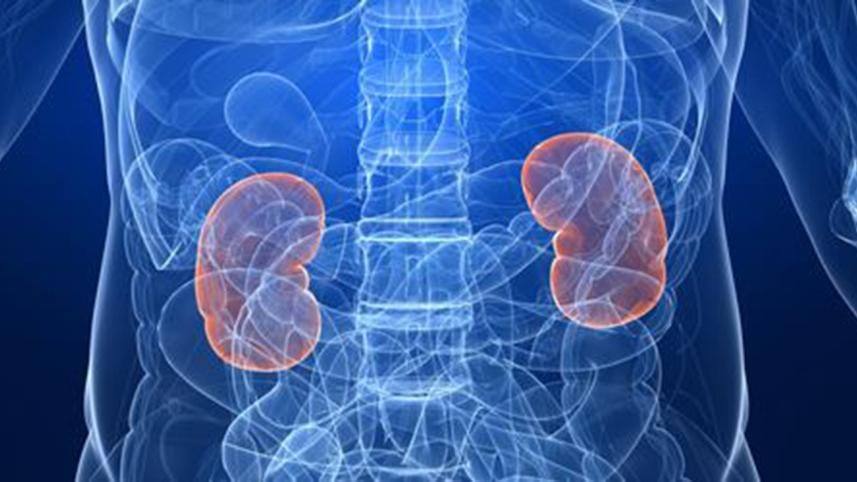Poor state of kidney care in South Asia: Study

People mostly the poor suffering from Kidney diseases are not getting adequate treatment facilities in the South Asian countries including Bangladesh, said an international study.
Insufficient number and uneven distribution of trained medical and paramedical professionals, properly equipped facilities and lack of guideline-driven treatment, impacts all aspects of kidney care in the region, said researchers of the study.
The article titled 'State of Nephrology in South Asia' was published on the Kidney International, official journal of the international society of nephrology in January this year.
"High-quality but expensive care is provided in private hospitals to those who can afford it either through personal means or by employment-based insurance. Those without such coverage (unorganized workers or the self-employed) have to depend on the limited number of oversubscribed public-sector facilities," says the study published in the latest edition of the Kidney International.
"Clandestine cases of kidney sale continue to be reported, however. Worth pointing out is the intraregional trafficking, with poor people being brought from Bangladesh and Nepal to India, Pakistan and Sri Lanka for sale of kidneys and rich people from India going to Pakistan and Sri Lanka to undergo transplantation," says the study titled 'The state of nephrology in South Asia'.
Many private hospitals also provide care, especially kidney transplantation, to wealthy foreigners -- especially those from Sub-Saharan Africa, the Middle East, and central Asia, it said.
From time to time, various centers in India, Pakistan, and Sri Lanka have indulged in large-scale commercial transplantation, both for domestic and foreign recipients. These were widely criticized and led to enactment of laws banning sale and purchase of organs," says the study.
Basic laboratory services are available in most urban areas in the South Asian region but specialised services such as renal pathology and transplant immunology are limited, it said.
Non-availability of immunofluorescence and electron microscopy constrains the ability to accurately diagnose and classify kidney disease. Facilities that collect blood and biopsy samples from small towns and have those analyzed in central laboratories are improving service availability, it adds.
"Widespread availability of generic and bio similar medicines in the region has the potential to bring down the cost of treatment. By way of example, a vial of 4000 units of erythropoietin costs as little as US$4 in India. On the other hand, some drugs such as eculizumab are not available even to those who can afford it, forcing them to buy through clandestine routes."
Efforts to establish national end-stage kidney disease registries are underway in Bangladesh, India, and Sri Lanka, it said.
The study concludes that "renal services in South Asia are characterized by increasing disease burden and a rapidly growing demand for service and research in the face of inadequate financial and manpower capacity. Increasing number of training programs, growing government support to renal replacement therapy, availability of cheap generic medicines, and development of locally appropriate models of service delivery offer hope for the future of nephrology in the region."
The South Asia region of the International Society of Nephrology comprises eight countries with a combined population of 1.77 billion, about 29% of world population in 2016. The World Bank classifies Afghanistan and Nepal as low-income countries; Bangladesh, Bhutan, India, Pakistan, and Sri Lanka as low-middle-income countries, and the Maldives as an upper middle-income country. Over 65% of the population in the region lives in rural areas.
The burden of acute kidney injury in the region has not been accurately estimated, but published literature indicates it to be high. Most cases of acute kidney injury seen in public hospitals are acquired in the community, related to suboptimal sanitation and water quality, tropical infections, and poor obstetric care. Delayed recognition and inappropriate treatment in the remote rural areas result in missed opportunities to prevent development of acute kidney injury.
The study has been conducted by Vivekanand Jha of George Institute for Global Health India, New Delhi and George Institute for Global Health, University of Oxford, Harun Ur-Rashid of Kidney Foundation Hospital and Research Institute, Dhaka, Syed Fazal Akhtar of Department of Nephrology, All India Institute of Medical Sciences, New Delhi, Rishi Kumar Kafle of Department of Nephrology, Sindh Institute of Urology and Transplantation, Karachi and Rezvi Sheriff of Department of Nephrology, National Hospital, Colombo.



 For all latest news, follow The Daily Star's Google News channel.
For all latest news, follow The Daily Star's Google News channel.
Comments